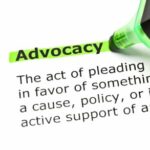Author Archives: Jay Butchko

What Happens If I Waive My Right To Counsel In A Criminal Trial?
The Constitution guarantees your right to be represented by a qualified attorney at every stage of your criminal trial. As with any such right, you can waive your right to counsel and represent yourself. Should you do this? No. We will not go into all of the reasons here, but suffice to say, self-represented… Read More »

Does The U.S. Have Criminal Jurisdiction Over Boats In International Waters?
In most cases, U.S. criminal law does not apply to acts that occur outside of the United States. But in its efforts to curb the international drug trade, Congress adopted the Maritime Drug Law Enforcement Act. This Act effectively gives federal prosecutors extra-territorial jurisdiction to pursue foreign nationals in U.S. courts for alleged drug… Read More »

Is There A Difference Between Supporting A Terrorist Organization And Committing A “Crime of Terrorism”?
Money laundering and drug trafficking are two of the most commonly prosecuted federal crimes in Florida. Both offenses can lead to serious prison time. And in some cases, prosecutors may try and up the stakes by trying to connect such activities to “terrorism,” which can lead to even harsher sentences. Federal Appeals Court Orders… Read More »

What Is The Sentence For “Aggravated Identity Theft” Under Federal Law?
Identity theft broadly refers to the illegal use of someone else’s personal identifying information. One common form of identity theft is using false or stolen information to obtain legal identification, such as a passport or driver’s license. Oftentimes, the people who commit such crimes are not doing so for any nefarious reason. They may… Read More »

Is “Rehabilitation” A Factor In Deciding A Federal Prison Sentence?
Although historically the federal government looked at prison as a way to “rehabilitate” individuals convicted of criminal activity, since the 1980s, legislative policy has moved away from that objective. In fact, when Congress created the federal sentencing guidelines in the mid-1980s, one of the stated objectives was to “recognize that imprisonment is not an… Read More »

The Role Of The Jury In Criminal Sentencing
The Sixth Amendment to the United States Constitution guarantees every person charged with a crime the right to a jury trial. The U.S. Supreme Court has further clarified that this right extends to the determination of “[a]ny fact that, by law, increases the penalty for a crime.” In other words, if prosecutors need to… Read More »

Miami Judge Tosses Gun Found During Illegal Search Of Suspect
You might think that courts will always believe the testimony of the police over that of a criminal defendant. But that is not true. Take this recent case from Miami, United States v. Howard. The defendant in this case was talking with some friends on the sidewalk outside of a building. Miami police detectives… Read More »

Can I Withdraw A Guilty Plea In A Criminal Case?
In any criminal prosecution, the defendant may choose to enter a guilty plea, thereby waiving their right to a trial on their guilt or innocence. But can the defendant change their mind? That is to say, can a guilty plea be withdrawn after the fact and a new plea of “not guilty” entered in… Read More »

Can The Police Arrest And Search You for Violating A Municipal Ordinance?
Not every action that violates the law is a crime. If you run a red light, for example, you have committed a non-criminal traffic infraction. A police officer can briefly stop you and issue you a ticket. But they cannot handcuff you or otherwise detain you any longer than is necessary to write the… Read More »

How Can An Arthur Hearing Help Me Get Bail?
In many criminal cases, a defendant has the right to bail. This is typically an amount of money that must be posted with the court as a deposit to ensure the defendant’s appearance at trial. Bail allows a defendant to remain free–i.e., not in jail–while their criminal case is still pending. When it comes… Read More »

Could I Go To Jail For Driving With A Suspended License?
Traffic violations typically do not result in jail time. One exception, however, is driving with a suspended license (DWLS). If your driving privileges have been previously suspended, revoked, or canceled, and you are caught behind the wheel of a vehicle, you may actually face some amount of jail time. Indeed, in some cases jail… Read More »

Entrapment As A Defense To Drug Charges
When the police improperly induce a defendant to commit a crime they would not have otherwise committed, that is considered entrapment. Under Florida law, both objective and subjective entrapment are possible affirmative defenses to a criminal charge. Objective entrapment focuses on egregious conduct by law enforcement. Subjective entrapment, in contrast, involves an assessment of… Read More »

Can The Police Stop You Based On An “Anonymous” Tip?
Before the police can detain you, they need “reasonable suspicion” to suspect you of a crime. For instance, if an officer observes you breaking a traffic law, that in and of itself is usually enough to create reasonable suspicion to initiate a stop. But the officer may also rely on information supplied by someone… Read More »

Federal Court Denies Epstein Victims Lawsuit Against Government
One of the biggest criminal justice stories in recent years involved the now-deceased Florida financier Jeffrey Epstein. According to federal prosecutors, Epstein conspired with a number of people to sexually traffic and abuse over 30 young girls. Epstein allegedly paid his own employees to “deliver” the girls to him, some of whom were barely… Read More »

How Lying To Your Car Insurance Company Can Lead To Felony Charges
Filing a false insurance claim is a crime in Florida. Indeed, insurance fraud is considered a felony. This means that if caught and convicted, a defendant could face decades in prison. Florida Appeals Court Revives Insurance Fraud Prosecution A recent decision from a Florida appeals court, State v. Delprete, provided an important clarification as… Read More »

Federal Court Strikes Down Fort Lauderdale’s Ban On Distributing Food To Homeless Persons In City Park
The First Amendment is well known for protecting freedom of speech. In this context, “speech” is not just public speaking or commentary on political issues. It also includes a wide range of expressive conduct that is meant to convey a social message of some sort. Such expression is also protected under the First Amendment,… Read More »

Federal Prosecutors Charge Florida Court With Wrongfully Obtaining COVID-19 Relief Funds
Due to the COVID-19 pandemic, Congress authorized unprecedented forms of economic relief to help struggling individuals and businesses stay afloat. Under the CARES Act, passed by Congress in March 2020, eligible small businesses could apply for “forgivable loans” to cover payroll and other authorized expenses. This is known as the Paycheck Protection Program (PPP)…. Read More »

Is “Consent” A Valid Defense To A Federal Sex Trafficking Charge?
Sex crimes do not just include direct offenses against individuals, such as sexual assault. It also includes “commercial” activities like child sex trafficking. Federal law states a person is guilty of sex trafficking if they “knowingly recruit, entice, harbor, transport, provide, obtain, or maintain a minor” to engage in any “commercial sexual act.” In… Read More »

Can I Go To Jail For A “Technical Violation” Of My Probation?
When someone is placed on probation following a criminal conviction, they are required to follow a number of terms and conditions. If there is any violation, no matter how small or technical, the defendant can be brought before a judge. Now, this does not necessarily mean the judge will revoke probation and send the… Read More »

Are Rap Videos Posted To YouTube Admissible As Evidence In A Drug Case?
Social media makes it easy for anyone to produce, distribute, and even monetize their creative talents. Of course, anything that you share with the world via the Internet can also be found by law enforcement. In some cases, “creative” prosecutors might even try and use a defendant’s online videos as evidence against them. But… Read More »

What Are Considered “Mitigating Factors” In Florida Criminal Sentencing?
Every criminal offense in Florida carries a minimum permissible sentence. But a judge can take into account certain “mitigating circumstances” and impose a sentence beyond the statutory minimum. For example, if the defendant negotiates a plea bargain with the prosecution for a lower sentence, the court can accept that. Another common ground for granting… Read More »

How Skipping Out On Your Rent–Or Defrauding A Charitable Beneficiary–Can Lead To Serious Criminal Charges
Financial crimes are not always the result of some elaborate organized criminal conspiracy. Oftentimes it is just a case of people struggling to make ends meet. Perhaps they take some money from their employer without asking to help pay a bill. From a legal standpoint, however, such acts are still considered theft. And if… Read More »

Florida Court Upholds Murder Conviction, Finds Defendant Made “Unequivocal” Waiver Of Miranda Rights
The police are required to inform you of your Miranda rights before they interrogate you. These rights include the ability to refuse to answer any questions and/or speak with an attorney. It is common practice for the police to ask a suspect if they wish to “voluntarily” waive these rights and answer questions. If… Read More »

Medical Professionals Face Drug Charges Over Questionable Prescriptions
Although most people associate drug crimes with the distribution of illegal narcotics like cocaine or heroin, in fact a person can also be charged with improperly distributing legal prescription drugs as well. This includes licensed medical providers. If a doctor or other health care professional dispenses a prescription drug to someone without a legitimate… Read More »

Does The First Amendment Protect Panhandling?
The First Amendment broadly protects every person’s freedom of speech. This is not limited to political speech. It also protects speech purely designed to advance one’s own interests–even when that may annoy or inconvenience others. Florida Appeals Court Finds Fort Myers Panhandling Ban Unconstitutional For example, courts have consistently held that asking for money… Read More »




















